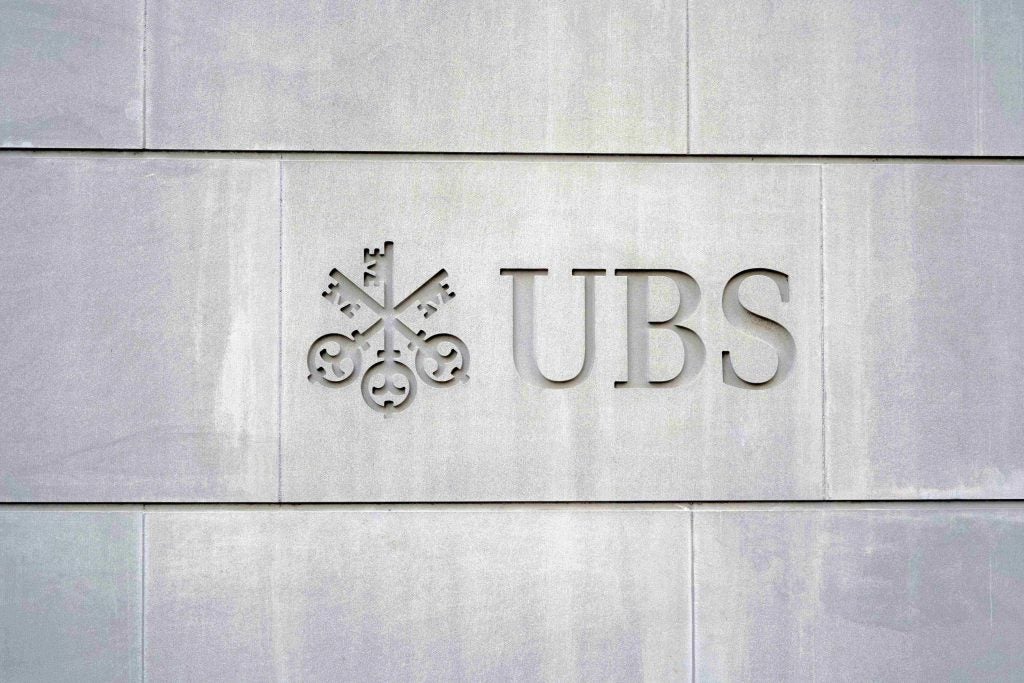UBS is widely seen in the industry as being at the forefront of innovation in the wealth space. Dirk Klee, UBS Wealth Management COO, tells PBI about the changes that are being made to its IT systems, and why it is not all about apps at the Swiss bank. John Schaffer reports
UBS’s focus on innovation in wealth management has been one of the key topics for the Swiss bank, with its work on sophisticated technologies such as artificial intelligence (AI) in its various innovation hubs to releasing UBS SmartWealth – its robo advisor in the UK.
UBS’s innovation hubs consist of a cooperation with level39 in London, as well as its own fintech innovation hubs in Zurich and Singapore. However, Dirk Klee, COO of UBS’s Wealth Management division, is keen to make sure that innovations are neither frivolous nor confusing for clients. He says:
“We are trying to reach out to startups and fintechs to engage with people who would not usually want to work in a banking environment. On the one hand we are spreading our radar to be on top of all the new technology developments that are happening. But strategically, you have to make your choices very deliberate. We have to make sure we don’t drown in a sea of apps, or that the innovations are peripheral and don’t make a difference in the business model context.”
The innovation hubs are where UBS test their new ideas and initiatives. “The innovation hubs are places where we test. A lot of things have an unknown outcome when we start; from there we take viable pilots back into the bank and try to integrate them into our existing capabilities. Much of the innovation that we do is not visible unless you are inside the bank.
How well do you really know your competitors?
Access the most comprehensive Company Profiles on the market, powered by GlobalData. Save hours of research. Gain competitive edge.

Thank you!
Your download email will arrive shortly
Not ready to buy yet? Download a free sample
We are confident about the unique quality of our Company Profiles. However, we want you to make the most beneficial decision for your business, so we offer a free sample that you can download by submitting the below form
By GlobalData“It’s vital that we look beyond apps. What does digital really mean for our bank in terms of front to back processes? It’s not just the front end client channels, but everything including the back office – where you actually have the most manual, cumbersome, non-integrated legacy infrastructures and the biggest leverage to provide simplicity, reduce
costs and eventually provide a better client experience,” says Klee.
Building IT from the ground up
The challenges of legacy system architecture have not bypassed the Swiss banking giant. One of the key focuses for UBS is to streamline its IT systems through its so-called “One Wealth Management Platform”. Klee tells PBI that there is still a “patchwork of legacy systems” across the UBS network. There has been a trend among large banks to outsource
core banking functionality to third parties; however Klee says UBS has opted to create its system from scratch. “We’ve invested hundreds of millions in the past and we’re constantly upgrading our core banking platform in Switzerland,
which was the starting point. The next step was to make our platform a multi- currency, multi legal entity and multi country capable.
“We are in the process of rolling this out to our largest non integrated franchise, which is Asia. We’re delivering the platform this year to Asia and with that concluded we will have brought over 80% of our international assets on to one straight through processing (STP) infrastructure.” The global platform will not include the business division of UBS Wealth Management Americas for the moment.
Personnel cull
With the load lessened from the burden of legacy systems, the question of whether UBS is looking to cull staff comes to light. Although Klee is unable to comment on whether job cuts are likely, he notes: “New jobs get created through innovation, but it is difficult to tell whether equivalent jobs are being created. “We have a high rate of finding
new jobs within the bank when we do a re-structuring. We have to do these upgrades to stay relevant as a bank. Technology is complementing the client advisor with STP that is evident consistently throughout the bank. It’s not just at the front end, leaving a big spaghetti infrastructure at the back end.”
Robos an integral part of advisory
Technology has become integral in how human advisors are managing clients’ portfolios at UBS. Klee says: “Digital is the natural compliment to any human lead advisory. The core model of wealth management and private banking going forward is a hybrid model where you use technology at your fingertips 24/7 with seamless interaction with robo advice – which could help interactions with clients, but could also run parts of the portfolio or the holistic advice piece.”
Klee says UBS uses a machine that screens portfolios. The machine works in an overnight cycle and generates recommendations such as changes to portfolio composition, duration and whether investments are in line with tactical or strategic allocation. “We’ve automated the whole advisory engine. When you speak to a client advisor at UBS, the
advisor has a “robo” at hand and supplements it with additional insight.”
Klee adds that the advisory engine is not an algorithm, but that the system pulls together insights from the CIO and a global team of research analysts. The screening process does not re-balance portfolios, with any asset allocation decisions still being in the hands of a human advisor.
The bank’s bespoke approach to technology innovation has also been applied to its robo advisor proposition. The new UK proposition, UBS SmartWealth, has been built inhouse, rather than opting for white-labelled solutions that some competitors have chosen. However, Klee says that there was consideration over whether to buy an existing robo advisor: “We decided not to buy a robo advisor as there was a trade off with integration into our existing system, as well as being on brand and being compliant from a regulatory perspective. But we always keep options open for the future and look at interesting opportunities.”
Chinese opportunities
UBS is eyeing up China as a captive market, especially for digital only solutions: “China will be the market where clients will leapfrog traditional banking because they don’t have the traditional relationships with banks over centuries through personal advice like in Europe for instance. It’s likely that as quickly China adopted e–commerce, there will be a fast forward digitalisation on robo advice, because that intermediary step is non-existent.”






